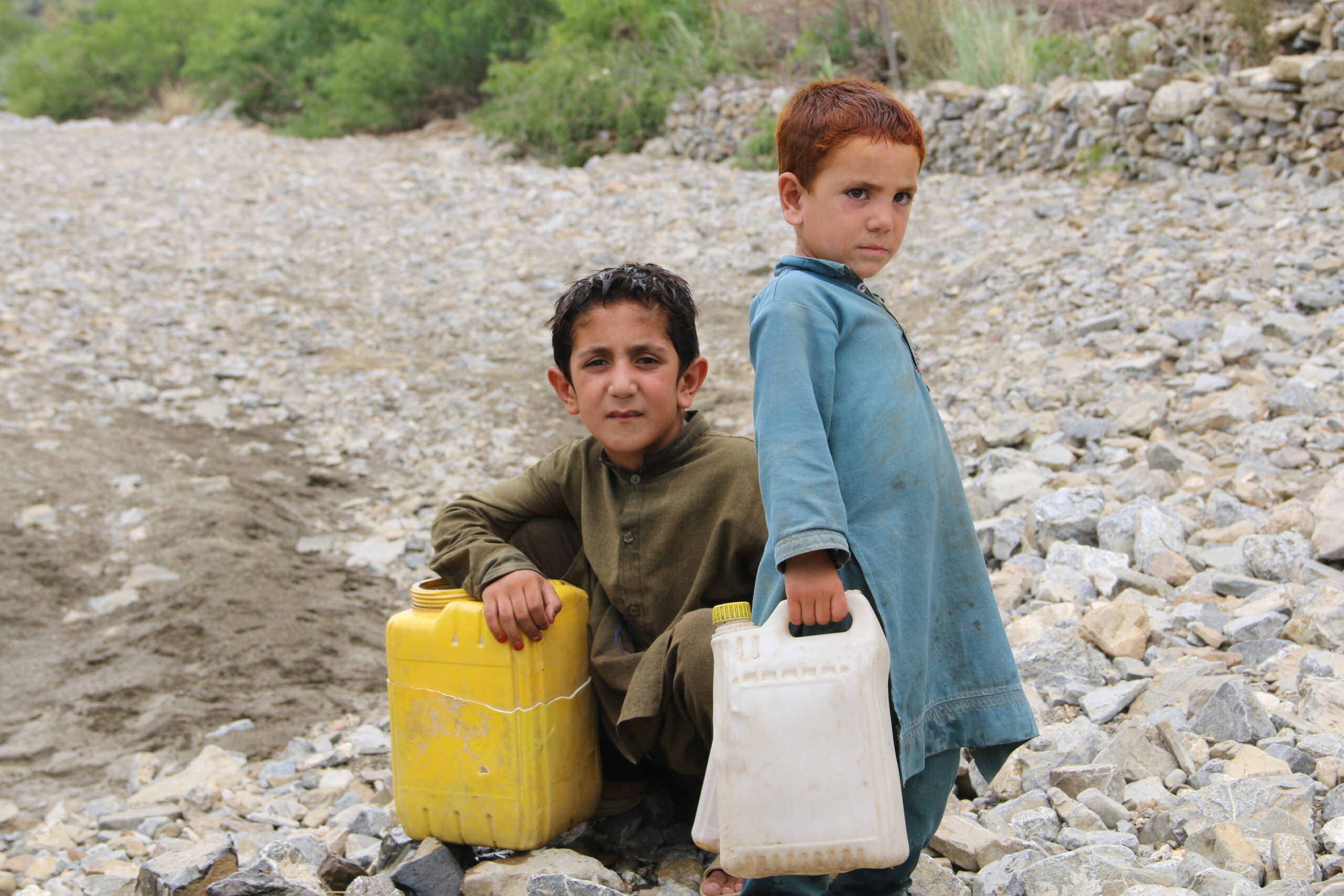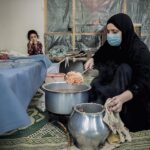For World Food Day, October 16, 2024, the Afghan Times and IUF Asia/Pacific released a report “Women and Food Insecurity in Afghanistan” highlighting the country’s worsening food crisis, deteriorating health conditions, and rising malnutrition, exacerbated by the Taliban’s systematic repression on women and girls’ rights.
Afghanistan’s health crisis continues to escalate, with the rates of malnutrition among children reaching alarming levels. Following the Taliban’s rise to power, widespread food insecurity, economic collapse, and the breakdown of public health systems have left millions at risk of severe malnutrition.
The latest United Nations reports indicate that child malnutrition rates in Afghanistan are among the highest in the world. Over 50% of Afghan children under the age of five suffer from some form of malnutrition. Stunting, a condition caused by long-term insufficient nutrition, affects nearly 40% of children, while wasting—defined as a dangerously low weight-to-height ratio—affects 9.5%. These figures far surpass global averages, putting Afghanistan on par with some of the most food-insecure countries in sub-Saharan Africa.
“We are seeing children with dangerously low weight levels, unable to walk, or suffering from developmental delays,” said Dr. Ahmad Sediqi, a pediatrician in Herat. “It’s a crisis we have not seen on this scale before. Many mothers bring their children too late because they have no access to clinics or simply no food at home.”
The collapse of Afghanistan’s healthcare system has made treating malnutrition a daunting task. With many hospitals and clinics understaffed and underfunded, care for malnourished children is often delayed or inadequate. International medical organizations like Médecins Sans Frontières (MSF) continue to provide assistance, but Taliban-imposed restrictions on female health workers and a shortage of medical supplies have severely limited their reach.
“Our healthcare system is crumbling. We lack medicine, equipment, and qualified staff,” said a Kabul-based doctor, speaking under anonymity. “Especially in rural areas, there are no facilities left to treat children with malnutrition. Women who were a key part of the health sector have been banned from working, further crippling services.”
The mental health toll of chronic hunger is equally devastating, particularly for children and vulnerable populations. Long-term food insecurity is known to have profound psychological effects, leading to anxiety, depression, and developmental challenges. Children who experience hunger often face cognitive impairments, lack of concentration, and delayed emotional development. These issues are compounded in Afghanistan, where widespread trauma from decades of conflict continues to affect millions.
“The psychological effects of hunger are catastrophic. Children are not just physically stunted—they are emotionally and mentally scarred,” said Nargis Fatima, a child psychologist in Kabul. “Many young children I see are anxious, withdrawn, or show signs of depression. They speak of hunger more than they speak of play or learning. Hunger defines their existence.”
The situation is particularly dire for pregnant and breastfeeding women. Malnutrition among mothers increases the likelihood of infants being born underweight, continuing a vicious cycle of malnutrition across generations. According to a report by UNICEF, nearly one in five newborns in Afghanistan is underweight, increasing the risk of infant mortality.
Efforts to tackle malnutrition in Afghanistan remain hampered by the Taliban’s governance. Humanitarian agencies are constrained by Taliban-imposed restrictions on aid workers, particularly women. Even as international organizations try to deliver food aid and medical supplies, corruption and mismanagement within local Taliban structures often mean resources do not reach those most in need.
“Malnutrition is a silent killer,” said an aid worker from Save the Children. “We are doing what we can, but without a functioning government to support health services and provide food security, this crisis will continue to spiral.”
Without urgent intervention, experts warn that Afghanistan’s malnutrition crisis will result in a generation of children suffering lifelong physical and mental health consequences. As the country’s health system buckles under the weight of the crisis, international organizations call for more targeted aid and fewer restrictions to reach those in need.








